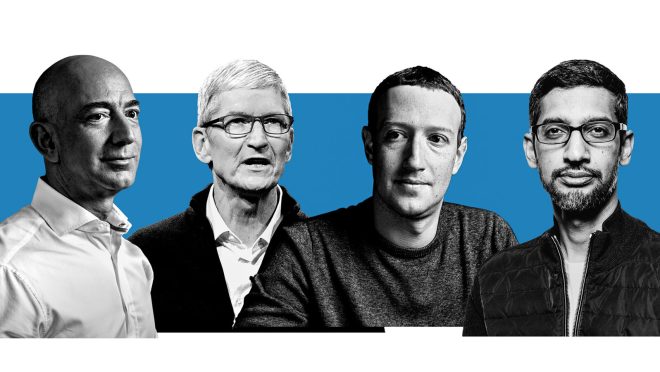The irony of innovation: How the world’s most powerful CEOs manage time while we waste it
The irony of innovation: How the world’s most powerful CEOs manage time while we waste it

We all know famous CEOs like Mark Zuckerberg, Jeff Bezos, Tim Cook, Jack Ma, and Elon Musk, the visionaries behind some of the world’s most powerful companies. But have you ever stopped to wonder why they’re the ones at the top? What do they do that most people don’t?
The answer often lies not in luck or genius alone, but in how they use the same twenty-four hours we all have.
While many of us spend our leisure time scrolling through social media or watching shows, these leaders invest their time in learning, thinking, creating, and recharging with purpose. Even their moments of rest are designed to boost productivity and creativity. The real question isn’t just how they became CEOs; it’s how they live differently every single day compared to ordinary people.
Sometimes I wonder how these famous entrepreneurs become so rich, how their minds work so quickly, and what makes them think so differently from ordinary people. The real difference lies in how they manage their time and how conscious they are about their health, food, and work.
When they take a break, most of us would spend that time scrolling through social media, chatting with friends, going on trips, or simply sleeping. But if we look at these entrepreneurs in the same situation, they rarely waste a single moment—even during their leisure time. They might read books, plan a new product, think about business strategies, or learn new skills.
That’s where the difference lies—in mindset, time management, and the habit of learning something new every day. During vacations, they don’t just pass time; they know how to use it effectively and productively.
We need to learn from them, be inspired by their discipline, and understand how they use every hour meaningfully. To improve, we must first study their daily lives, how they spend their free time, how they make it count, and how they start each day with purpose.
How great minds spend their time and what it teaches us
Research shows that many famous entrepreneurs use strategies such as time-blocking or careful scheduling to avoid wasting hours on distractions, unlike many of us who spend excessive time scrolling through phones or watching content of little value.
They priorities sleep, healthy eating, and exercise, whereas much of the younger generation struggles with poor sleep and constant fatigue. Even in their leisure time, they read, walk, meditate, or spark creativity, turning free moments into opportunities for new ideas.
I am not suggesting that everyone needs to follow their lifestyle exactly. However, we can use our time more purposefully, learning new skills, adopting positive habits, and cultivating a mindset like theirs. By doing so, we can make meaningful contributions in our own way.
The books they read are diverse: Sapiens: A Brief History of Humankind, The Geography of Thought, and Foundation, among others. Notice that they don’t limit themselves to science, technology, or business; they also study history, philosophy, and society. This wide range of knowledge helps them think critically, creatively, and strategically.
We see that even after achieving remarkable careers and making significant contributions to the modern world, they never stop learning. They don’t waste time because they understand that stopping their learning or failing to anticipate future challenges would make them fall behind. Their contribution, vision, determination, and skills are all extraordinary, but there’s much that ordinary people can learn from them.
Technology should serve you, not distract you
While discussing the contributions of famous CEOs, it’s important to notice that their innovation can also have unexpected consequences for ordinary users. For example, platforms like Facebook, created by Mark Zuckerberg, are incredibly useful, yet many young people waste hours scrolling through them, while Mark Zuckerberg himself uses his time productively. Similarly, Amazon makes shopping convenient, but some people spend excessively on things they don’t really need. Even tools like ChatGPT are designed to help us, yet overuse can reduce creativity.
Every innovation has pros and cons. Those who learn to use it effectively benefit, while those who use it only for entertainment or timepass risk falling behind. The CEOs behind these innovations don’t waste time; they anticipate the future, and create more breakthroughs that most of us cannot even imagine.
In this era of rapidly advancing technology, continuous learning is essential. Technologies evolve, some disrupt jobs, and the world moves quickly. To stay productive, competitive, and inspired, we must adopt the habits of successful people, use time wisely, learn new skills such as programming, designing, and writing, and stay curious. Innovations themselves are not the problem; it’s how we use them. Don’t let technologies distract you; let them inspire you to grow and keep up with the pace of progress.
“If you wake up with no goals, no ambitions, you have nothing to do in life. You are just existing, not living.” — Jack Ma.
This quote can truly change how we view our own lives. We should not merely exist; we must truly live. To live fully, we cannot waste our precious time. Time management is essential; plan your day, set priorities, and focus on meaningful work.
One way to understand this is to study the life of a successful entrepreneur. They started from humble beginnings, faced numerous failures, yet used their time wisely to learn, experiment, and grow.
Think about skills you should develop or any ability that will improve your mind and expand your opportunities. Consider the habits, mindset, and focus that will make you more effective. By doing so, you can start to make a meaningful contribution to the world, just like the entrepreneurs you admire.


